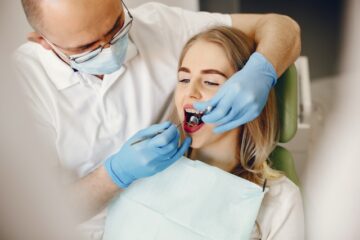8 Best Vitamins and Minerals for Strong Teeth and Healthy Gums

Contents

You may feverishly brush and floss your teeth twice a day, but if your staple foods are French fries and soda pop, it won’t be long before oral issues arise. A nutritious diet rich in various dental vitamins and minerals is essential to maintain a healthy smile at any age. If your body lacks any of these teeth vitamins, it can cause an array of dental problems. We’ll tell you about the 8 best vitamins for teeth and gums and what to eat to cover their deficiency, as well as provide actionable lifestyle tips for strong teeth. Read on to munch consciously!
Why Vitamins Matter for Oral Health
Vitamins are invaluable organic compounds that are vital for maintaining healthy teeth and gums. It’s only natural that we extract the greatest amount of nutrients through the process of chewing. The imbalance of teeth strengthening vitamins and minerals can lead to malnutrition and adverse dental health conditions such as cavities, gum inflammation, and periodontal disease. Remarkably, vitamin consumption affects our oral health and tooth development from early childhood, so the memes about a kid choking on broccoli instead of enjoying a delicious chocolate bar are reasonable.
8 Most Important Vitamins & Minerals for Dental Health
Let’s discover what vitamins are good for teeth and gums and why.
- Calcium
Calcium plays a vital role in strengthening tooth enamel and jawbone. It’s crucial to have enough calcium in your diet while your teeth are still developing as its deficiency can make them weak and more susceptible to damage. Calcium helps neutralize acids in the oral cavity that can eventually damage tooth enamel, so the intake of this mineral that helps build strong bones and teeth can prevent tooth decay and gum disease in the future.
- Vitamin D
Vitamin D is a fat-soluble vitamin that helps the body to absorb calcium and phosphorus. It enhances bone mineral density and supports the jawbone structure. An adequate intake of vitamin D helps reduce the risk of tooth decay, gum inflammation, and periodontal disease. The deficiency of Vitamin D can weaken your teeth and gums, so make sure to take the most out of warm shiny days: your body naturally produces it when exposed to sunlight!
- Vitamin C
Vitamin C, or ascorbic acid, is known for its substantial impact on gum health. It helps your body produce collagen, which is vital for the soft tissue in your mouth. Vitamin C is indispensable for reducing inflammation and preventing teeth from loosening. If you experience cuts in the mouth due to braces, this essential compound can largely assist in wound healing.
- Vitamin A
Vitamin A contributes to saliva production that washes away food particles and keeps your mouth comfortable. It helps you maintain healthy soft tissues that protect your body from harmful bacteria. The deficiency can result in an unpleasant condition called “dry mouth” and diverse oral infections.
- Vitamin K
Vitamin K promotes proper calcium metabolism in the body, directing it to your bones and teeth. This helps you maintain strong teeth and enhance their resilience against decay. Besides, adequate levels of Vitamin K improve jawbone density, which is essential to prevent bleeding gums, gingivitis, and periodontitis. When your body lacks this vitamin, your gums are more likely to bleed, and the healing processes can slow down.
- Vitamin B12
Vitamin B12 is essential for energy output and promoting optimal blood circulation. This contributes to healthy gums and soft tissues in your mouth. A deficiency of Vitamin B12 enhances the risk of oral diseases and gum inflammation.
- Phosphorus
Phosphorus is a mineral that restores teeth and gums, working hand in hand with calcium to strengthen tooth enamel. It promotes calcium absorption, maximizing its bone-strengthening abilities. Phosphorus intake enhances tooth resistance to acid attacks by plaque bacteria and sugars in the oral cavity.
- Potassium
Potassium is a lifesaver for calcium, preventing this mineral from leaching from your teeth and improving your bone mineral density. It supports healthy nerve function and blood pressure regulation, ensuring adequate blood flow to your gums and surrounding tissues.
This was a brief overview of the 8 best minerals for teeth and their importance for your dental health. What’s next? Should you seek these nutrients in specialized supplements for teeth or are common foods enough to feed your body with a sufficient amount of vitamins for strong teeth? Let’s find the answers!
Should You Take Supplements for Better Oral Health?
Meeting your nutritional needs through food sources is a perfect solution, but not everyone can afford the luxury of developing a balanced diet and following a corresponding daily meal plan. Sometimes, people have particular dietary restrictions or health conditions that make it challenging to receive specific vitamins for teeth health.
In this case, over-the-counter vitamin supplements for oral health can be helpful. However, we recommend you consult your physician and take all necessary examinations to prevent an overdose of vitamins for teeth your body already has in abundance. Check the product description before purchase and read patients’ reviews to ensure the safety and accuracy of the chosen remedy.
Daily Diet and Lifestyle Tips for Strong Teeth
Integrating foods rich in vitamins for teeth enamel in your daily diet can help you maintain good oral health. Follow our simple recommendations to facilitate the process:
- Less sugary and acidic foods and drinks. Their excessive consumption can cause tooth decay and enamel erosion.
- Drink plenty of water. Satisfy your body fluid needs to wash away food particles after meals and keep your mouth sufficiently hydrated.
- More foods high in fiber. Eating fiber-rich products like carrots and apples promotes saliva production and helps remove plaque.
- Eat foods rich in vitamins for healthy teeth. Maintaining a nutritious diet can help strengthen your teeth and bones and prevent gum disease.
Now that we’ve mentioned vitamins for teeth cavities and other oral issues, here is a comprehensive chart depicting which products you should put in your shopping cart to ensure adequate nutrient intake.
| Vitamin/Mineral | Sources |
| Calcium | Dairy products: milk, cheese, and yogurt;leafy greens: kale and broccoli;almonds;salmon;fortified plant-based milk. |
| Vitamin D | Fatty fish: salmon and canned tuna;fortified foods and drinks: cereal, milk, and orange juice;portobello mushrooms;egg yolks. |
| Potassium | Fruits: bananas, oranges, tomatoes, avocados, prunes;vegetables: Lima beans, Swiss chard, potatoes, and sweet potatoes;spinach. |
| Phosphorus | Seafood: scallops, shrimp, sardines, tuna, cod, and salmon;meat: beef and pork;plant-based foods: lentils, soybeans, and pumpkin seeds;dairy products: milk and cheese;fruits: grapes, tomatoes, and citrus fruits; cucumbers;cereals;nuts;eggs. |
| Vitamin K | Leafy greens: kale, collards, parsley, broccoli, brussels sprouts, and spinach;hard cheese; egg yolks. |
| Vitamin C | Fruits: oranges, grapefruits, strawberries, kiwi, and bell peppers;leafy greens;potatoes. |
| Vitamin A | Leafy green vegetables: spinach, kale, and collard greens;orange-colored foods: carrots, pumpkin, oranges, apricots, cantaloupe, and sweet potatoes;fish;egg yolk;liver. |
| Vitamin B12 | Whole grains; legumes; leafy green vegetables;eggs;dairy products;nuts. |
Increase Your Vitamin Intake!
Vitamins and minerals are crucial to maintaining good oral health, and all the aforementioned compounds can be easily included in a well-balanced diet. It might be tricky to determine which vitamin your body lacks, but a thorough oral examination in a Dental Office in Forest Hills, NY or another reputable clinic of your choice can dot all the i’s. Our skilled doctors are always happy to see you for a professional dental checkup and expert consultation!
Additional Resources
- To learn more about the role of vitamins in oral health, read this systematic review by the National Library of Medicine.
If you suspect you have Vitamin B12 deficiency, this case study might allay your concerns.













